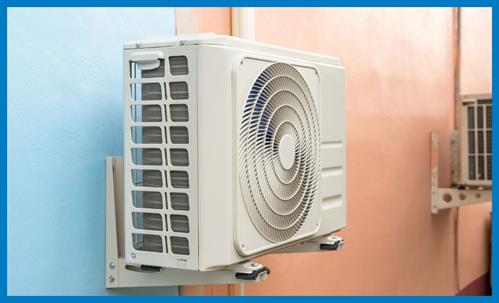Types of HVAC Systems
When considering the most suitable HVAC system for your home, understanding the different options available is crucial. One of the most common systems is central air conditioning, which efficiently cools an entire home through a network of supply and return ducts. This system comprises several essential components like the condenser, blower, compressor, and evaporator coil, which work together to circulate cool air evenly throughout your rooms. By extracting warm air and replacing it with cooler air, central air systems provide a comfortable environment even in the hottest months.
Alternatively, a heat pump system offers versatility as it functions in both heating and cooling modes. This system operates by transferring heat from inside your home to the outside during the summer and reversing the process to bring warmth inside during the winter. Its ability to manage indoor temperatures efficiently makes it popular in moderate climates. In addition, heat pumps can be an eco-friendly choice due to their lower carbon emissions compared to traditional heating options.
Energy Efficiency and Cost Considerations
Energy efficiency is a critical aspect of selecting an HVAC system. Understanding ratings such as SEER (Seasonal Energy Efficiency Ratio) and HSPF (Heating Seasonal Performance Factor) can influence your decision greatly. A higher SEER rating means better energy efficiency during the cooling season, leading to reduced electricity bills. Similarly, a higher HSPF indicates a more efficient heat pump. These ratings are a direct reflection of how well a system can manage energy consumption during different seasons.
When considering a new HVAC system, it’s essential to weigh the initial installation costs against the potential long-term savings. While high-efficiency systems often entail a higher upfront cost, they can pay for themselves over time through lower energy bills. Moreover, government incentives such as tax credits and rebates can further offset the initial investment. Check with local authorities for available schemes that might help you afford a more advanced system. These incentives encourage homeowners to adopt modern systems that reduce environmental impact while aligning with budgetary constraints.
Cold Climate Systems
In colder regions, the comparison between heat pumps and furnaces becomes a significant consideration. Furnaces, which burn natural gas, oil, or obtain electricity to produce heat, are often more effective during extremely cold conditions than heat pumps. However, heat pumps offer an energy-efficient alternative suitable for areas experiencing milder winters. Despite the higher energy cost of running a furnace continuously, they are sometimes necessary in extremely cold climates due to their superior heating capacity. For residents considering a secondary property in cooler regions, understanding these differences can aid in making an informed choice for winter heating.
Warm and Humid Climates
In Florida, which is characteristically warm and humid, the ability of an HVAC system to dehumidify effectively becomes a top priority. Air conditioning systems equipped with advanced moisture removal technologies help maintain indoor comfort by reducing muggy conditions. They prevent the growth of mold and mildew, which thrive in high humidity. Selecting an HVAC system tailored to these environmental conditions ensures a cooling experience that is both comfortable and healthy. Understanding the dehumidification capacity of systems can enhance your home's air quality and overall climate control capability.
Complexity of Installation
The installation intricacies of different HVAC systems impact both convenience and cost. Central air systems require comprehensive ductwork installation, which can be labor-intensive, especially in homes not pre-equipped with ducts. Conversely, ductless mini-split systems offer a simpler installation process, as they do not require extensive ductwork. Instead, they consist of separate indoor units linked to an outdoor compressor. These features make them an attractive option for smaller homes or additions that don't accommodate duct installations.
Maintenance Practices for Longevity
Proper maintenance practices increase the lifespan of your HVAC system. Routine tasks such as changing air filters, cleaning ducts, and inspecting unit elements help keep systems functioning effectively. For systems like the central air conditioning or heat pumps, servicing by a professional to check and rectify refrigerant levels and inspecting electrical components is advisable. Regular maintenance can catch minor issues before they escalate into costly repairs.
Eco-Friendly Refrigerants
As environmental concerns grow, the HVAC industry is progressively adopting eco-friendly refrigerants. These refrigerants have lower global warming potential (GWP), playing a key role in reducing a unit’s carbon footprint. Modern systems utilizing such refrigerants contribute significantly to environmentally sustainable practices, which is increasingly important for eco-conscious consumers. Aligning with global efforts to minimize environmental impact, choosing HVAC systems that incorporate these eco-friendly technologies can be part of your broader commitment to sustainability.
Innovative Technologies for Sustainability
Advanced technologies like smart thermostats and zoned heating/cooling systems exemplify the innovative strides towards making HVAC systems more sustainable. Smart thermostats learn your schedule to optimize energy usage, while zoned systems allow precise temperature control across different home areas. These technologies enhance comfort and reduce unnecessary energy consumption, ultimately diminishing your household’s overall carbon output. For homeowners, integrating such innovations not only supports environmental sustainability but also optimizes system efficiency for current and future needs.
Final Thoughts and Contact Information
With a plethora of options available, selecting the right HVAC system requires informed decisions based on specific climatic conditions, energy efficiency, and sustainability goals. Anthony's Cooling-Heating-Electrical is committed to assisting homeowners with finding the heating and AC systems that perfectly cater to their needs and the unique demands of their local climate. As a trusted local service provider, we strive to offer you tailored solutions and expert advice to enhance your home comfort. Contact us today to learn more about how we can help you achieve an efficient and environmentally friendly HVAC system that suits your lifestyle and budget.
Call Anthony's Cooling-Heating-Electrical now at (941) 347-0779 or send us a message online.

